Unlocking the Power of Nigeria’s Ward Development Committees
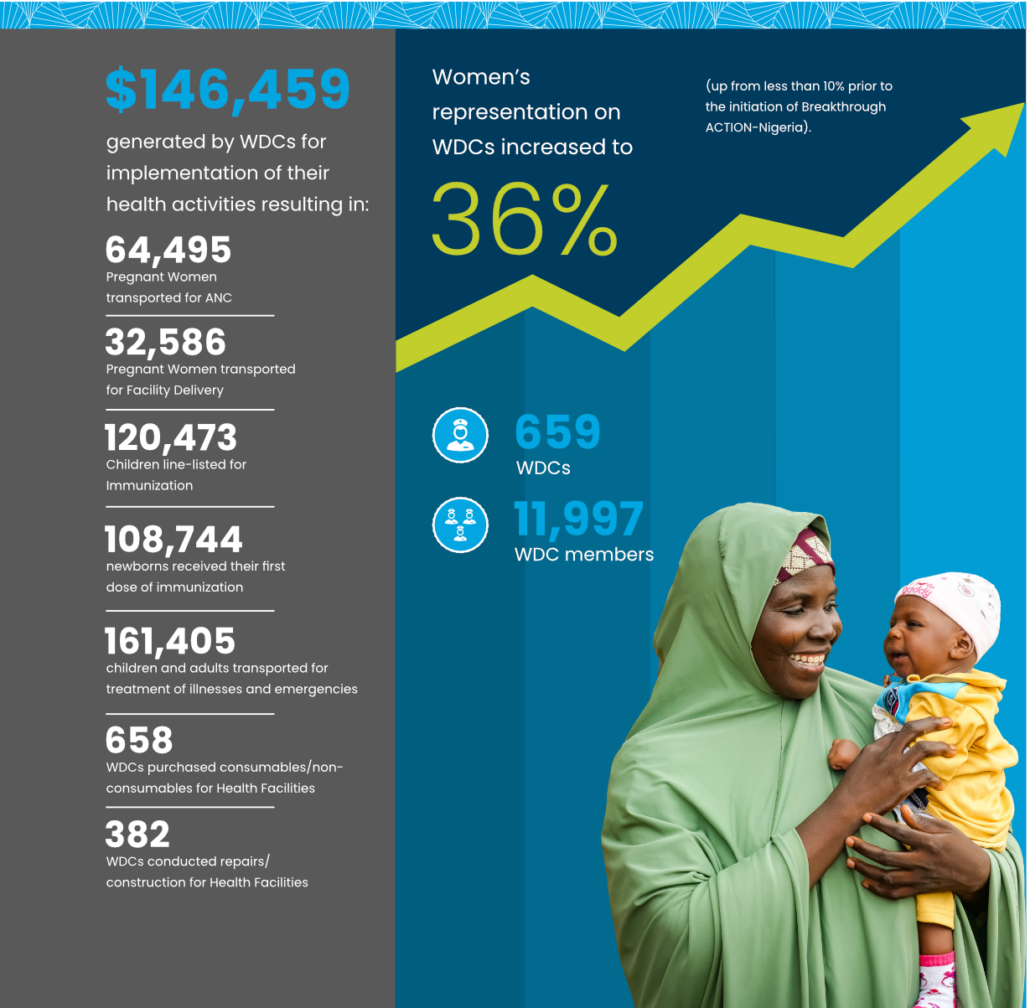
Mothers and children often face barriers like gender norms, distance to health facilities, and insufficient supplies at health facilities to get the care they need.
In Nigeria, an existing network of Ward Development Committees (WDCs) provided the perfect avenue to mobilize communities to act on maternal and child health. WDCs, which are an initiative of Nigeria’s National Primary Health Care Development Agency, comprise local community members responsible for organizing and managing health and development activities in their wards.
From 2019 to 2024, Breakthrough ACTION trained 659 WDCs across five states in Nigeria (Bauchi, Kebbi, Sokoto, Ebonyi, and the Federal Capital Territory) to plan, fund, and implement Community Health Action Resource Plans. The project supported the WDCs in delivering immediate community benefits like free transportation for pregnant women and children, delivery kits, funds for health facility renovations, and community health information boards. Breakthrough ACTION later focused on addressing gender disparities through training, forming Gender Economic and Empowerment Committees, and equipping WDCs with social and behavior change resources.
Over five years, Breakthrough ACTION identified the following factors that can leverage the power of WDCs to ignite collective action in communities:
- Empowering women to lead: Women leaders on WDCs significantly enhance community engagement, especially in health issues, by accessing and engaging with areas often veiled by cultural norms. Diversifying leadership amplifies outreach without sidelining men.
- Sustaining motivation: WDCs thrive on community acceptance, support from health facility staff, training, and capacity building. These elements inject vigor and momentum into their work.
- Involving community members in the support: WDCs flourish with the support of their communities and leaders. When communities provide necessary human and financial resources, collaborations expand, support broadens, and health plans become actionable.
- Building capacity continuously: Building WDC capacity is an ongoing journey. Continuous mentorship and support from Breakthrough ACTION and state-level staff and regular review meetings ensure sustained growth.
- Addressing literacy gaps: Language barriers and low literacy levels pose challenges in WDC communication and documentation. Teams with strong communication skills and access to tools in local languages boosted the efficiency of this effort and helped achieve goals.
- Leveraging the power of evidence-based tools: Equipped with evidence-based tools like the Community Information Board, which is designed to capture basic social and development data that communities can use to track the health and well-being of their children, WDCs gain trust and support, foster local data analysis, planning, and community-driven action, and thereby encourage healthier behaviors.
- Fostering trust through action: Demonstrating their ability to source for resources, solve health issues, and nurture development within communities builds trust with community members and empowers WDCs to make significant contributions to their communities’ health and development.
- Mobilizing resources sustainably: Identifying innovative ways to fund WDC activities is crucial for their uninterrupted journey towards community well-being.
- Building accountability through governance frameworks: Having guidelines at the national level and available at the state, local government area, and ward levels contributes to strengthened governance of WDCs. These guidelines offer a framework within which WDCs conduct themselves and are also held to account by state and community stakeholders.
Working with and through WDCs has proven to be an effective approach in Nigeria. WDCs have managed to allocate funds to implement the solutions their communities have developed. They have also implemented innovative ideas, such as a community-led system to transport pregnant mothers for facility-based delivery.
WDCs in Nigeria are more than bureaucratic committees. They are, in fact, the embodiment of the transformational power of collective action. Their successes are proof that local ownership is the key to long-lasting change. Explore Breakthrough ACTION Nigeria’s capacity-strengthening tools and resources and use them to empower your communities to create the lasting change you want to see.
Written by: Yusuf Ibrahim, Community Capacity Officer, Sokoto State; Olasumbo Babaferi, Community Capacity Officer, Federal Capital Territory; Suleiman Magani, Community Capacity Officer, Kebbi State; Aliyu Dan Asabe, Community Capacity Officer, Bauchi State; Ijeoma Chiemela, Community Capacity Officer, Ebonyi State; Amina Bala, Community Capacity Team Lead; Gloria Adoyi, Senior Maternal, Newborn, and Child Health Advisor; Usman Usman Sabo, Capacity and Sustainability Advisor; and Valentine Edoziem, Documentation and Knowledge Management Officer

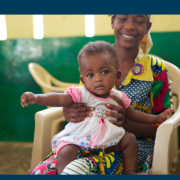 Sara Holbak/VectorWorks/Photoshare
Sara Holbak/VectorWorks/Photoshare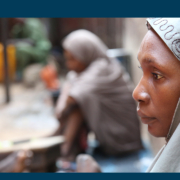
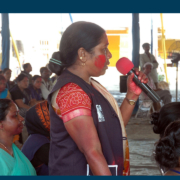 Gopal Bhattacharjee/Photoshare
Gopal Bhattacharjee/Photoshare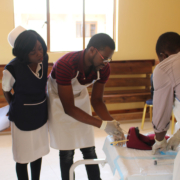
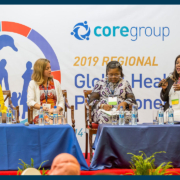 2019 CORE Group Global Health Practitioner Conference
2019 CORE Group Global Health Practitioner Conference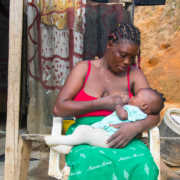 Pitshou Budiongo
Pitshou Budiongo